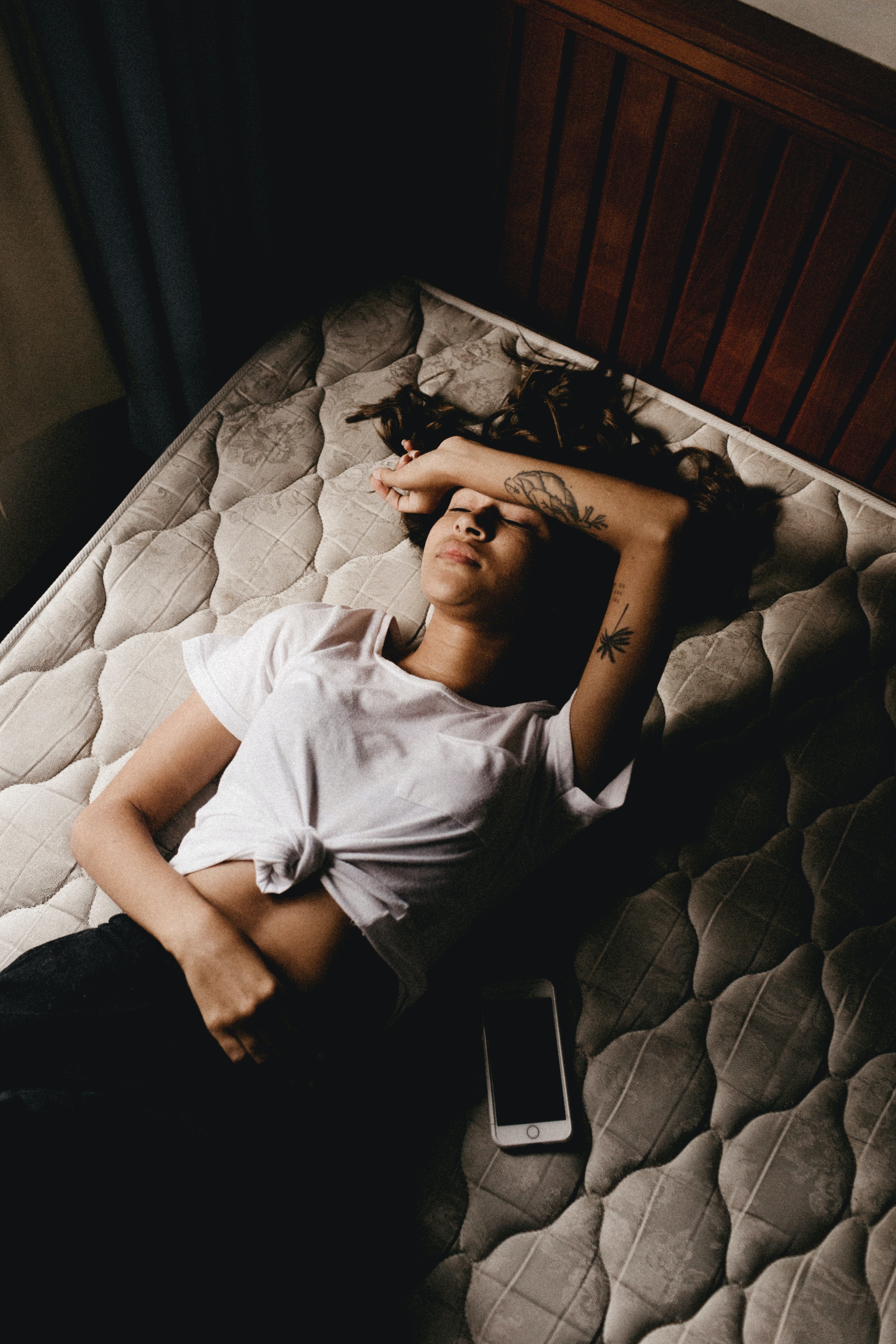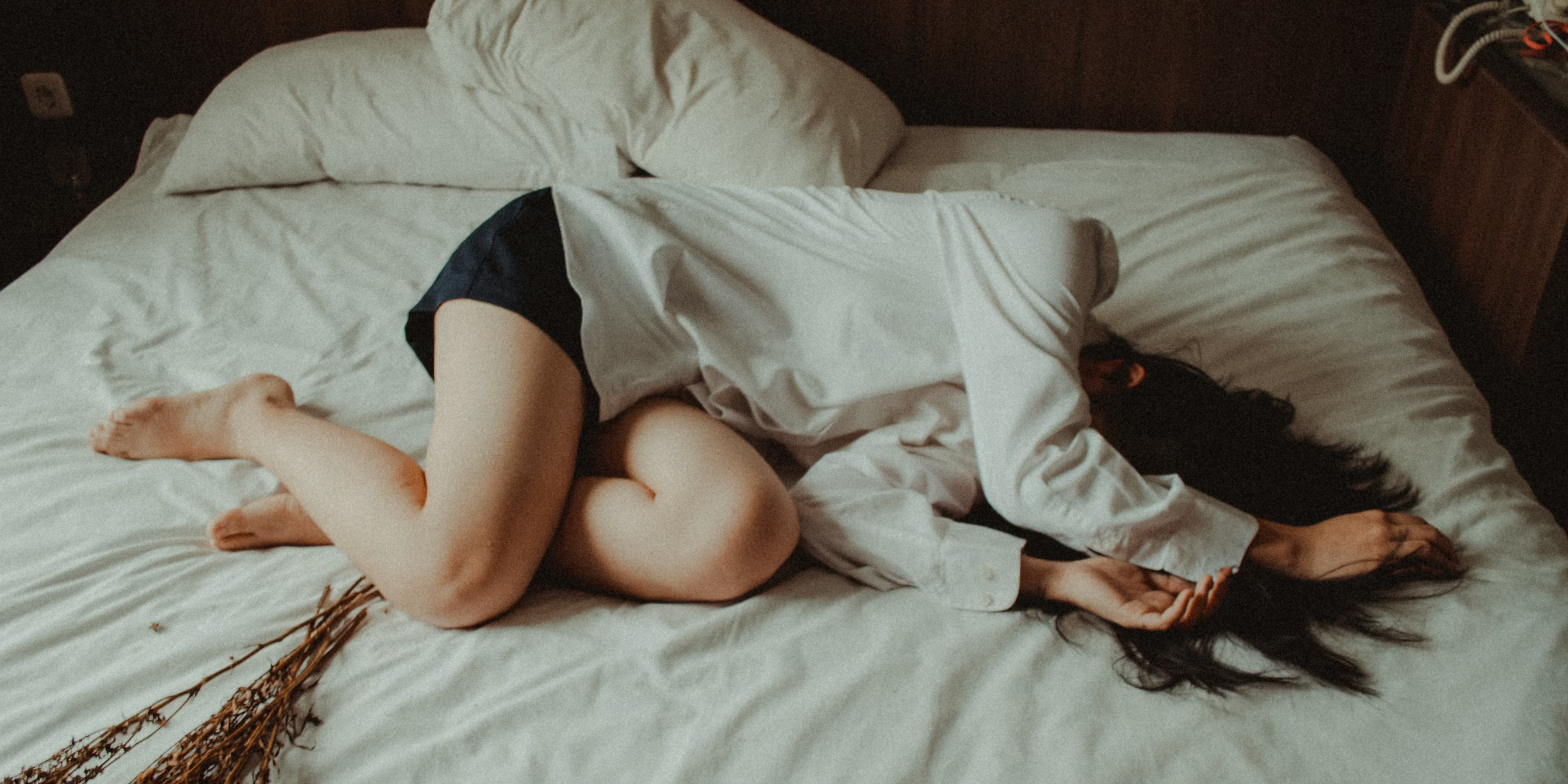How To Tell When Your Period Is Coming | 5 Top Tips

If you're someone with a period, you probably noticed it usually follows a pattern. Your cycle might not be the same every month, but if you can tell when these patterns occur (and how to predict them), it's easier to figure out if these are signs that your period is coming.
For most women, the menstrual cycle has an average duration of 28 days, ranging from 25 to 35 days. It is made up of four hormones that go up and down during your cycle, and cause PMS symptoms.
The cycle begins when oestrogen and progesterone levels are at their lowest on the initial day of menstruation. As the cycle progresses from days 2 to 13, oestrogen levels rise until the time of ovulation (day fourteen). After ovulation, progesterone levels rise during the luteal phase (days 15 to 28), before dropping and causing the start of a new cycle.
In this post, we'll look at common premenstrual symptoms most women have before their period arrives.
Your breasts get sore.
You may experience sore or tender breasts before your period.
Fluctuating hormone levels can cause premenstrual breast swelling and tenderness before your period. Estrogen causes the breast ducts to enlarge, while progesterone production causes the milk glands in your breasts to swell — and both of these can make them sensitive!
It is worth remembering that if you have a low level of discomfort in your chest around the time of your period, this is likely normal. However, it is recommended you see a doctor if this pain gets worse.
You get cramps.
If you're like most people, you'll know that it's time for your period when the cramps start. Abdominal cramping is one of the first signs that your uterus is preparing itself for menstruation, and can happen anywhere from a few days to a week before your period begins.
How long will menstrual cramps last? Usually only a day or two at most — and they may even go away after just 12 hours! If they do last longer than usual, though (or if they return during cycles), talk to your doctor about what might be causing them and how they might be treated.
Your doctor may suggest over-the-counter pain relievers to help reduce the discomfort of cramps, as well as lifestyle changes such as exercising and avoiding smoking and drinking alcohol.
You feel really tired.
You're not alone if you feel tired during your period.
It's normal to feel more tired than usual in the days leading up to your period and during your period, especially if you have PMS (premenstrual syndrome). You might not sleep as well, or you might struggle to focus on things that require lots of energy. This can be due to the hormonal changes in your body and brain during menstruation, which can make it harder for you to get up and go each morning.
Here are some ways to help you sleep better while on your period:
- Heat therapy: if you have menstrual cramps or lower back pain, take a hot water bottle to bed to try and relieve the pain. fluxies extra long hot water bottle is great for this, as it wraps around your body, distributing heat in targeted areas for period pain relief.
- Sleep in the fetal position: if you normally sleep on your back or stomach, you could try rolling over to your side with your arms and legs up to your stomach. This posture can reduce stress on the stomach muscles and is believed to be the most efficient way to get rid of cramping.
- Try to avoid caffeine: try to avoid drinking any caffeinated drinks in the evening and leading up to bedtime. Caffeine can make it harder to fall asleep, and can prevent you from getting a good night's rest.
- Avoid screens: if you usually watch TV or use your phone before bed, try to avoid it for at least an hour before you plan to go to sleep. The artificial light from screens can make it harder to fall asleep, and can disrupt your sleep cycle.
- Light exercise: try to get some exercise throughout the day, as this can help your body relax and make it easier to fall asleep at night.
You have a headache.
If you have a headache, pre-menstrual syndrome (PMS) could be to blame. Hormone-related headaches are common in women with PMS. They can happen at any time in your cycle, but tend to be more frequent during ovulation and menstruation (the week before your period).
If that's the case for you, try taking some over-the-counter painkillers like paracetamol or ibuprofen as soon as possible, after noticing the first signs of a headache — this will help relieve some symptoms while they're still mild.
If these simple steps don't work, talk to your doctor about what else might be going on with your body — you may need further treatment options!
5 Top Tips to Help Manage Your Period
- Drink water and stay hydrated — it may sound silly to drink more water when you're already feeling bloated on your period, but this will actually help flush out toxins and relieve bloating.
- Eat healthy foods high in iron, calcium and magnesium — eating a wholefood plant-based diet is a great way to stay healthy, on and off your period! Try and increase foods with high nutritional value, like leafy greens and nuts. Looking for the best foods to reduce period cramps? Find out more here.
- Take a hot bath — a hot bath can help relieve period cramps and also help you de-stress and relax. If you want to take things further, try Epsom salts, which contain magnesium, and help relax your muscles. If you don't have any Epsom salts, try baking soda — this can help relax your muscles and alleviate bloating!
- Wear comfortable period pants — Wearing fluxies period underwear will ease the stress of having to change your pad or tampon. These reusable and washable period pants are also leak-proof, so you won't have to worry about any accidents!
- Do light exercise: Low impact exercise like yoga, swimming and walking helps the blood flow, which will ease your cramps. If you experience mood swings during your period, exercise can also help you feel better, as it helps release a 'feel-good' hormone in your body.
How do you know when your period is coming? Share your experiences or period hacks with us in the comment below!



